The atmosphere is festive as University of Melbourne students fold up their tents and banners. Tarpaulins and rugs are rolled into bundles, revealing the green grass of South Lawn. The students are celebrating a partial win.
One month after they established their Palestine solidarity encampment, and nine days since occupying a building on campus, the university has agreed to meet a key demand and disclose more information about funding from weapons firms.
The students’ other demand – for full divestment from weapons companies – hasn’t been met. Yet.
As the students decamp, South Lawn is suffused with the sounds of a Bluetooth speaker, which sings: the dog days are over, oh, the dog days are done. But the dog days aren’t done. Not at all.
According to Palestinian health officials, Israel has killed more than 35,000 people in Gaza, most of them women and children. It’s likely many more lie trapped under rubble, unaccounted for as the slaughter continues.
The students say their university is complicit in this, which the International Court of Justice has said could plausibly amount to ‘genocide’, because of research and funding ties to weapons manufacturers like Lockheed Martin, Boeing and BAE Systems.
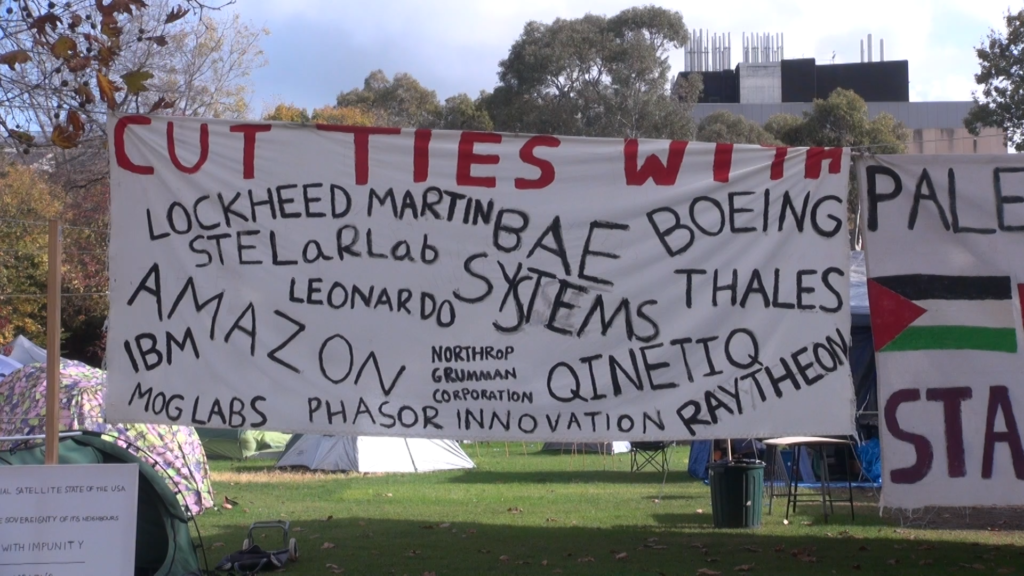
The activists have run an effective campaign, gaining more than 20,000 followers on Instagram alone, and winning support from across Melbourne’s broader pro-Palestine movement. This platform proved vital as the university escalated efforts to shut down campus protests.
Perhaps the most notable stand taken by students was the peaceful occupation of a university building that the protestors renamed Mahmoud’s Hall, in honour of Mahmoud Alnaouq, a Palestinian who was due to study on a scholarship in Australia before he was killed by an Israeli strike in Gaza during the early stages of fighting last year.
It was against this background the university had been preparing to move students on. In a pre-recorded video leaked to students and published online on May 16, University of Melbourne Deputy Vice-Chancellor Michael Wesley declares “the university’s patience is now at an end”.
He says “red lines have been crossed” and the university will soon take “disciplinary action and police action if necessary”. In the end, this didn’t eventuate. Students put out a call for support from academic staff and members of the public, which, perhaps in anticipation of violent scenes like those seen at universities in the United States, appears to have deterred the university administration from calling police onto campus to bust up the encampment.
The students have also stared down accusations of antisemitism from Zionist organisations.
The Executive Council of Australian Jewry (ECAJ) did not respond to City Journal’s request for an interview but has previously raised allegations of antisemitism on campus at a meeting with university chancellors. The meeting was convened by the federal Department of Education and attended by the Australasian Union of Jewish Students (AUJS), an affiliate of ECAJ.
The President of the AUJS, Noah Loven, told the ABC that Jewish students “are afraid of coming onto campus because of the encampments.” He said, “It’s a very dire situation and frankly it’s unacceptable.”
However, not all Jewish groups agree.
The Executive Officer of the Jewish Council Australia, Sarah Schwartz, told City Journal she was “really proud of the university encampments”, which she has seen firsthand as a member of staff at the University of Melbourne.
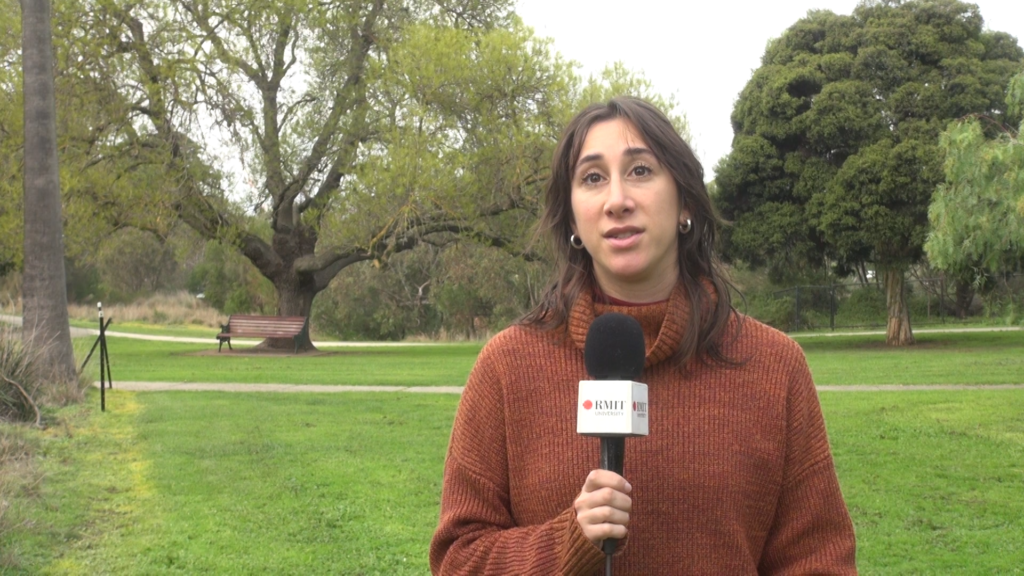
Schwartz said attempts to equate criticism of Israel with antisemitism “not only is incorrect but also really waters down the definition of antisemitism”.
“What that’s really doing is it’s saying that there is no difference between Jews and Israel, and then, it serves as a justification for Israel’s continued war crimes,” Schwartz said.
“Actually, thousands and thousands of Jewish people around the world are rising up and saying: not in my name.”
For Dana Alshaer, one of the key student organisers with UniMelb4Palestine, which organised the encampment, the dynamic is simple: “we’re not antisemitic, we’re anti-genocide,” Alshaer says.
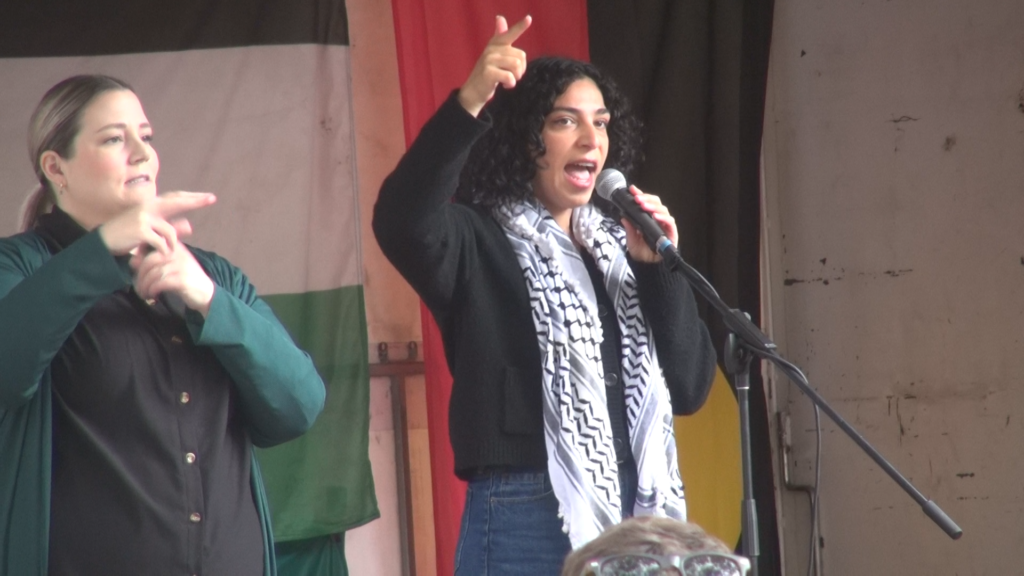
Former leader of the Victorian Greens, Samantha Ratnam, agrees. At a recent protest, she said:
“I had the honour of being in Mahmoud’s Hall a few days ago, and I can tell you, the feeling in that place, the honour those students have given to Mahmoud’s life, and the courage, the power and the determination, you can feel it coming through those walls, you can feel it on South Lawn […] because these are places where people are standing for peace, in peace.”
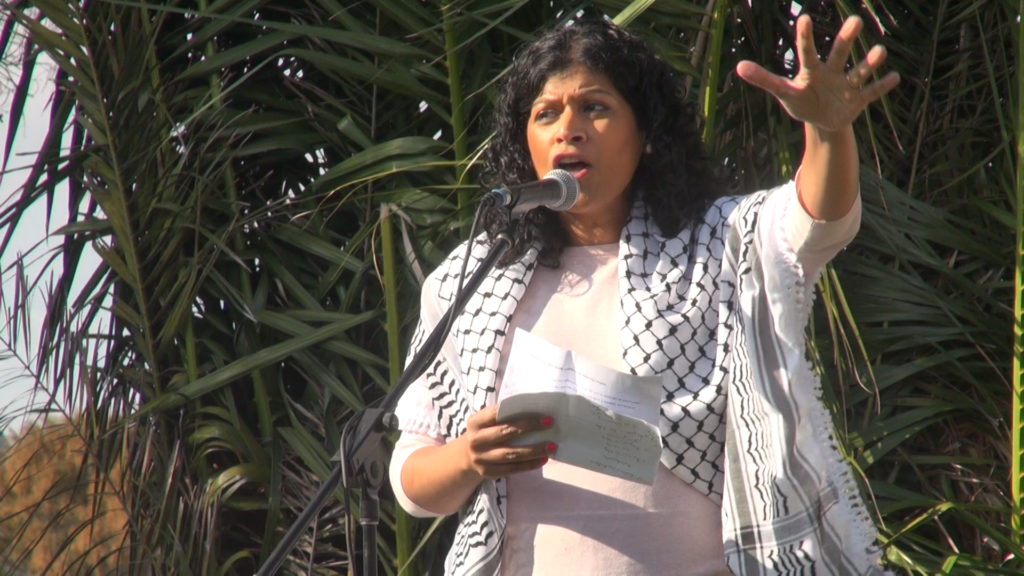
Student encampments have appeared across the nation at every major university, and some continue, but only Melbourne University and Curtain University have agreed to disclose their ties to weapons companies. As yet, no universities have agreed to divest.
Nevertheless, the success of the activists at Melbourne University has galvanised the city’s broader protest movement, which has included weekly protests outside the State Library and blockades of an Israeli cargo company, ZIM Shipping.
The Melbourne University students have vowed to continue their campaign for full divestment.
(Featured Image: A tent on South Lawn at the University of Melbourne Gaza solidarity encampment on Thursday, 23 May, 2024. The student encampment lasted 30 days before being packed up after the university agreed to disclose its funding from weapons companies. TEE MITCHELL)

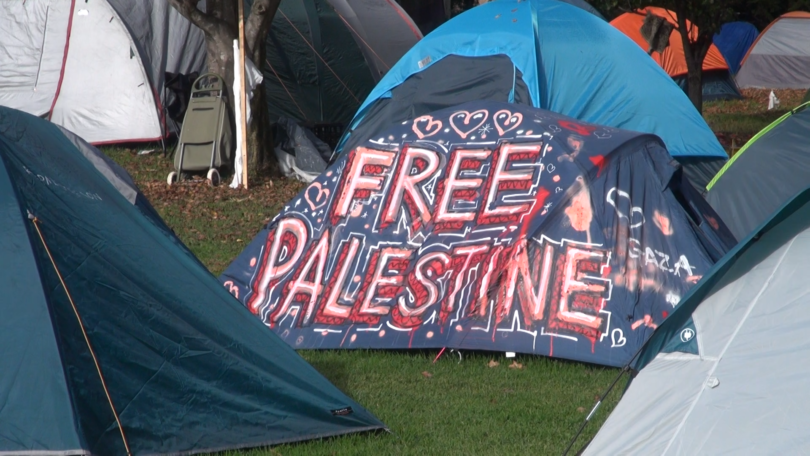
[…] Photo: Tee Mitchell […]